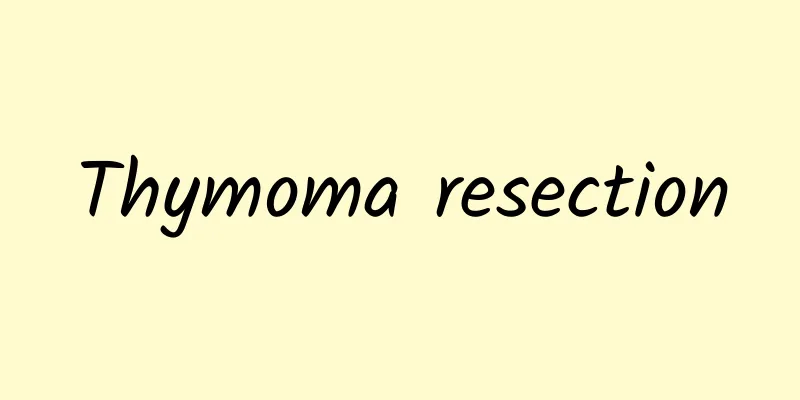What to do if you have saliva in your mouth?

|
Drooling is a very familiar symptom for many people. Not only babies, but adults are also prone to drooling. Generally, it is caused by the spleen and stomach of the human body. The constant saliva in the mouth will affect normal life. Frequent drooling can be improved through lifestyle habits, pay more attention to sleep, and try not to eat foods that are difficult to digest. What to do if there is saliva in the mouth all the time? It can generally be considered that drooling in adults is a manifestation of spleen and stomach dysfunction. This situation is common in cases of weakened spleen and stomach motility, water retention, spleen and stomach damp heat, or food retention in the stomach and downward movement, and stomach heat steaming up, which is the so-called "restless sleeping if the stomach is not in harmony." What should adults do if they drool? First of all, don't have any mental burden, go to a regular hospital for a check-up, and treat the primary disease of drooling, such as neurosis, oral inflammation, etc. Secondly, we should develop good eating habits, do not go to bed immediately after meals, do not eat too much dinner or eat too much greasy, sticky and other foods that are difficult to digest; Develop good hygiene habits such as rinsing your mouth after meals and brushing your teeth before going to bed to reduce the occurrence of oral inflammation. In addition, do not do strenuous exercise or overuse your brain before going to bed. Clinical manifestations of spleen and stomach disorders Spleen and stomach qi deficiency may manifest itself in symptoms such as dull pain in the stomach, abdominal distension, poor appetite, abdominal distension after eating, nausea, and belching. Spleen and stomach yang deficiency can be clinically manifested as persistent cold pain in the abdomen, preference for warmth and pressure, vomiting of clear water, poor appetite and abdominal distension, undigested stool, and scanty urine. The main symptoms of cold-dampness obstruction are abdominal distension, cold pain in the stomach, nausea and vomiting, watery mouth, heaviness in the head and body, cold body and limbs, and excessive and clear leucorrhea in women. Internal accumulation of dampness and heat may clinically manifest as abdominal distension, nausea, bitter taste in the mouth, poor appetite, heavy limbs, sticky stools, and short, yellow urine. Stagnation of Qi in the middle burner may cause abdominal pain and distension, belching and hiccups, or nausea and vomiting, poor appetite, etc. Treat according to syndrome differentiation 1. Spleen and stomach qi deficiency It refers to the dysfunction of the spleen and stomach's receiving, digesting and transporting functions caused by insufficient spleen (stomach) qi, which manifests as dull pain in the stomach, abdominal distension, poor appetite, abdominal distension after eating, nausea and belching, etc. This syndrome is mostly caused by improper diet, old age, physical weakness, and long-term illness that damages the spleen and stomach qi. Common diseases caused by spleen and stomach qi deficiency include stomachache, fullness, diarrhea, abdominal distension, etc. Commonly used prescriptions include Xiangsha Liujunzi Decoction, Shenling Baizhu Powder, Liujunzi Pills, etc. 2. Spleen and stomach yang deficiency It refers to symptoms such as persistent cold pain in the abdomen, preference for warmth and pressure, vomiting of clear water, poor appetite and abdominal distension, undigested food, and oliguria due to spleen and stomach Yang deficiency, failure to warm the stomach, and endogenous Yin and cold. It is often caused by worsening spleen and stomach Qi deficiency or excessive consumption of raw and cold food, or misuse of cold medicines, which leads to depletion of Yang Qi. Common diseases caused by spleen and stomach yang deficiency include: stomach pain, fullness, diarrhea, abdominal pain, bloating, vomiting, edema, etc. Common prescriptions include: Huangqi Jianzhong Decoction, Xiangsha Liujunzi Decoction combined with Wuzhuyu Decoction, Lizhong Decoction, Gancao Ganjiang Decoction, Xiao Jianzhong Decoction, etc. 3. Cold and dampness It refers to the excessive cold and dampness in the body, obstruction of spleen yang, stagnation of stomach qi, which leads to the dysfunction of the spleen's transportation and transformation, and failure of the stomach to harmonize and descend, resulting in symptoms such as fullness and stuffiness in the abdomen, cold pain in the stomach, nausea and vomiting, watery mouth, heavy head and body, cold body and limbs, and excessive and clear leucorrhea in women. It is often caused by wading in the rain, or by cold and damp weather, or by living in a cold place. Common diseases caused by cold and dampness blocking the middle burner include stomachache, fullness, diarrhea, vomiting, hiccups, etc. Commonly used prescriptions include: Erchen Decoction, Xiaobanxia Decoction, Lingguishugan Decoction, Dingxiang Powder, Liangfu Pills, Zhengqi Tianxiang Powder, etc. 4. Internal accumulation of dampness and heat It refers to the accumulation of damp-heat in the middle burner, which obstructs the transportation and transformation functions of the spleen and stomach, leading to symptoms such as fullness in the abdomen, nausea, bitter taste in the mouth, poor appetite, heavy limbs, sticky stools, and short yellow urine. It is often caused by exogenous damp-heat or excessive consumption of fatty, sweet and greasy foods, which leads to damp-heat accumulation in the spleen and stomach. Common diseases caused by internal damp-heat in the middle burner include fullness, constipation, dysentery, jaundice, etc. Commonly used prescriptions include: Dachengqi Decoction, Dachaihu Decoction, Gegenqinlian Decoction, Shaoyao Decoction, etc. |
<<: What to do if your whole body turns red due to alcohol allergy
>>: How to relieve the pain in the innermost tooth when swallowing saliva?
Recommend
Characteristics of lymph node metastasis in thyroid cancer
Thyroid cancer is a relatively common tumor, whic...
Is sweat steaming effective for weight loss?
For girls who love beauty, losing weight is a lif...
Contraindications of Erzhi Pills
Erzhi Pills are made with Ligustrum lucidum fruit...
Why does the stool look like mud?
What causes stool to be like mud? The stool is li...
Chinese medicine foot bath has many benefits
Many people in life know that there are many bene...
What does it mean when there are horizontal lines on the thumb nail?
Don't worry too much when horizontal lines an...
What is the correct way to boil Chinese medicine in an electric rice cooker?
As people become more familiar with medical knowl...
Effects of Astragalus membranaceus
Scutellaria baicalensis is a natural product ofte...
What are the white spots on my upper lip?
Sometimes when we look in the mirror, we find som...
The efficacy and function of truffle wine
In fact, in our daily life, many people have neve...
What are the indicators of leukemia blood routine? It turns out to be like this
Leukemia is a common disease these days, and it i...
Chinese medicine experts tell us: Six types of women are more likely to suffer from dysmenorrhea
Dysmenorrhea is a problem for many female friends...
Painless bruising on the earlobe
We all know that people may suffer internal injur...
Is there any medicine for kidney tonification?
What are the kidney-tonifying medicines? This is ...
How many days does it take for menstruation to be over?
Girls will start menstruating in their teens, and...









